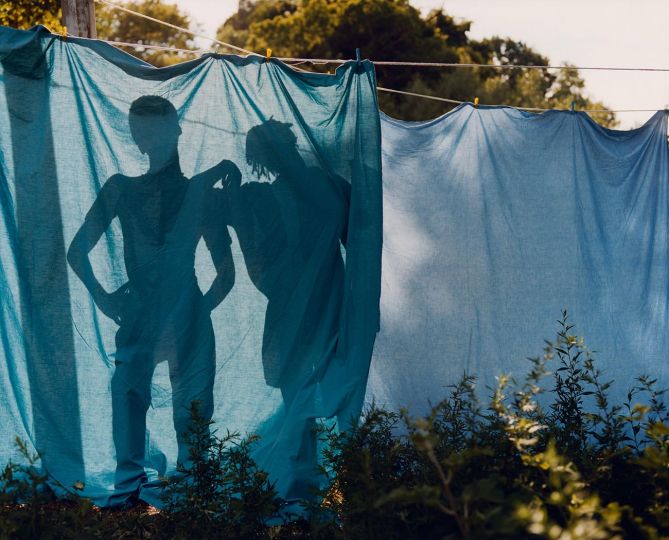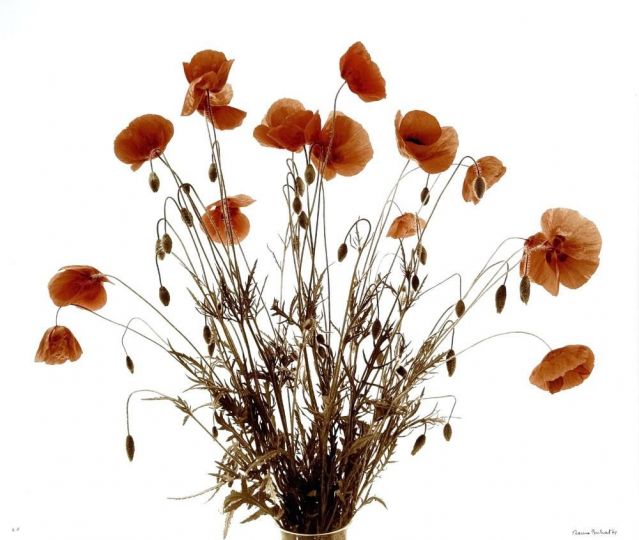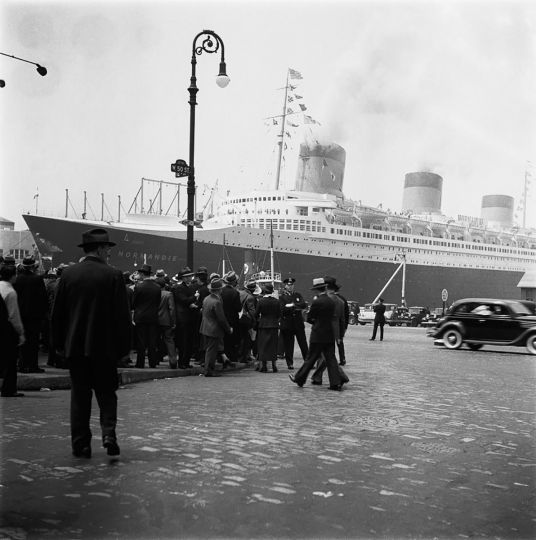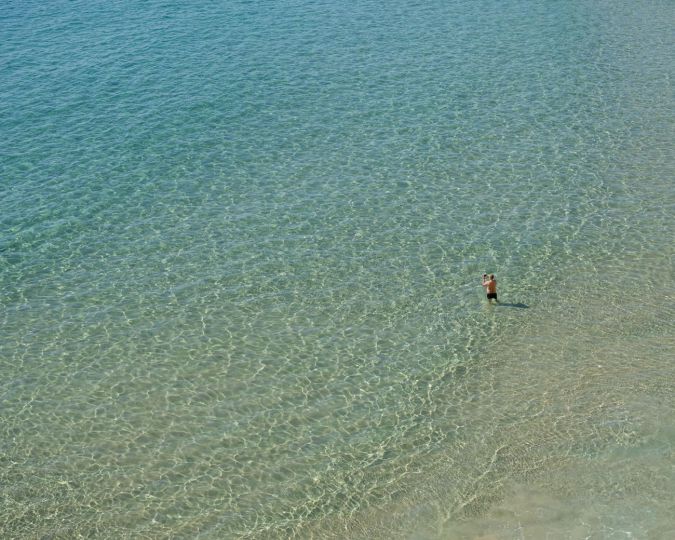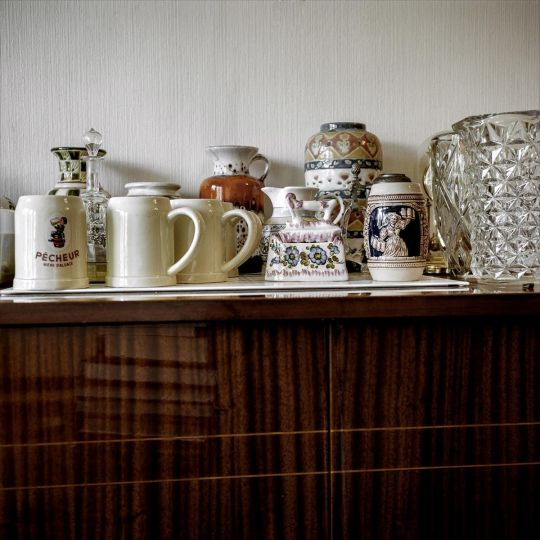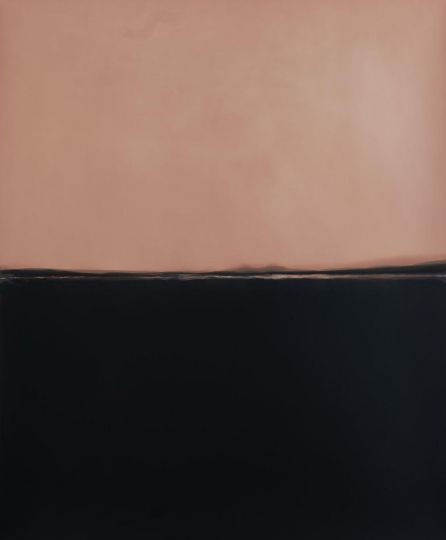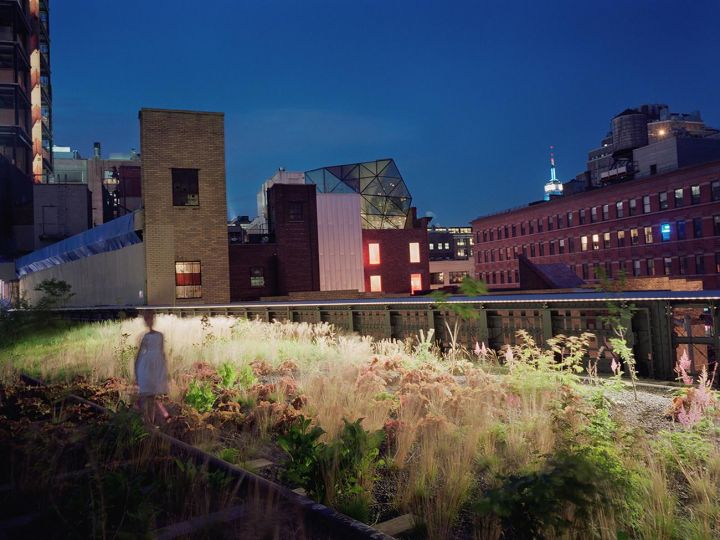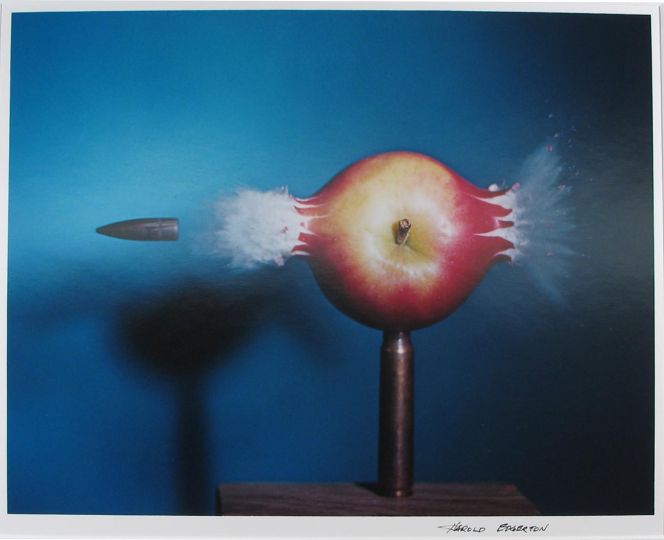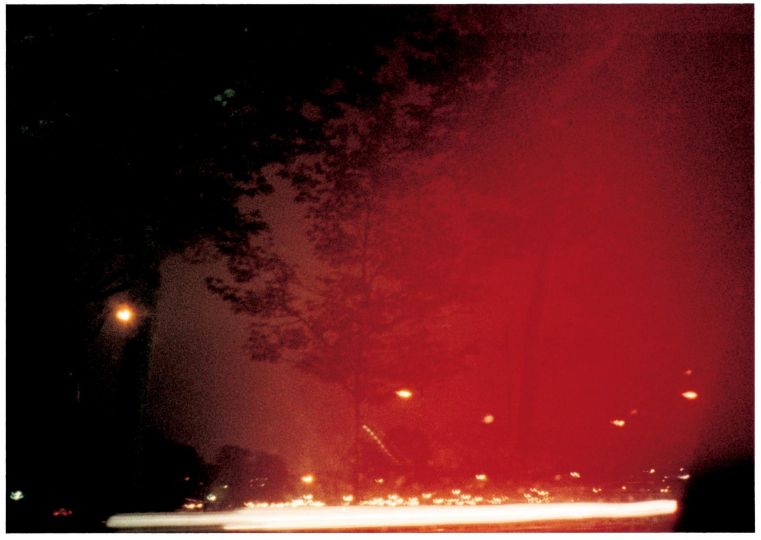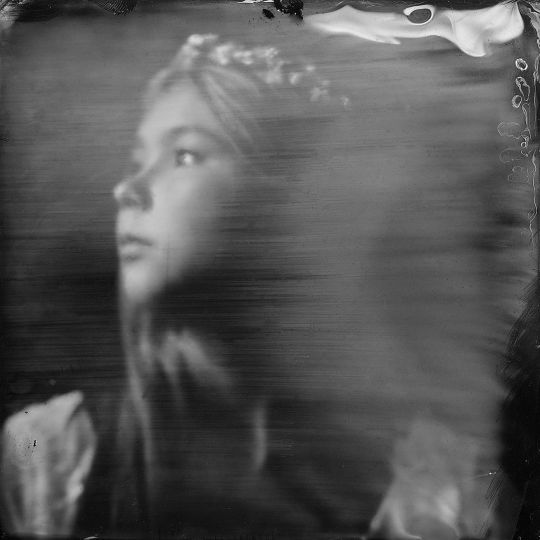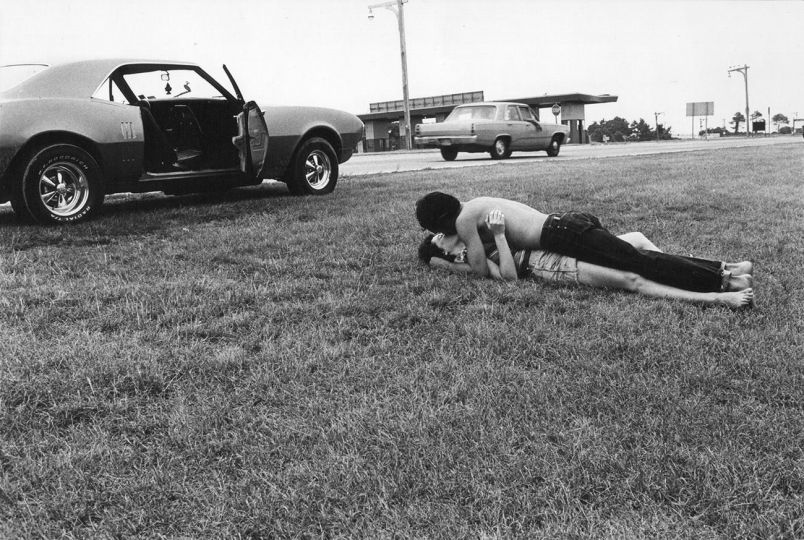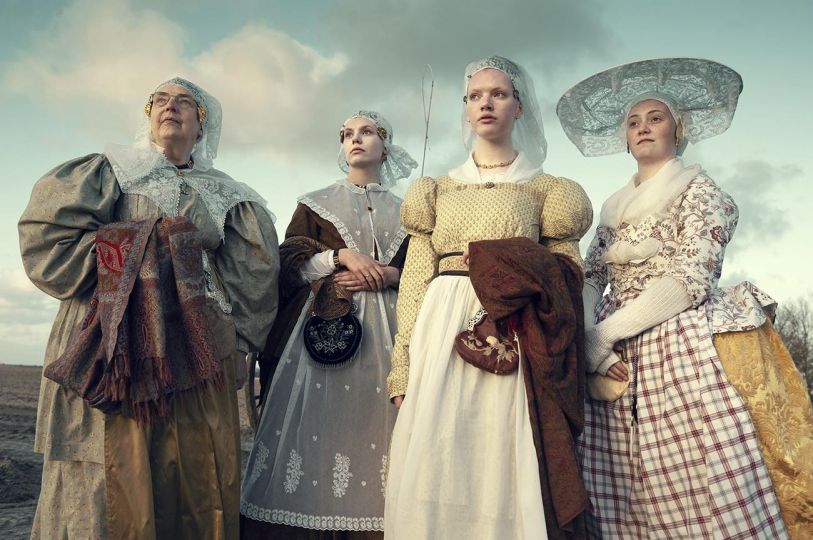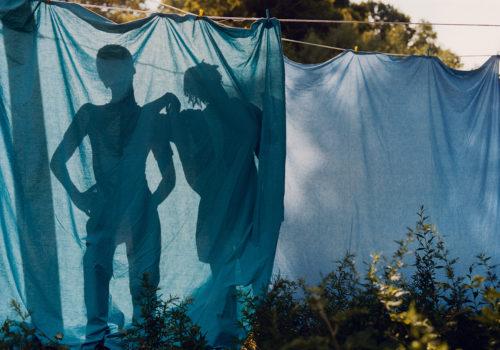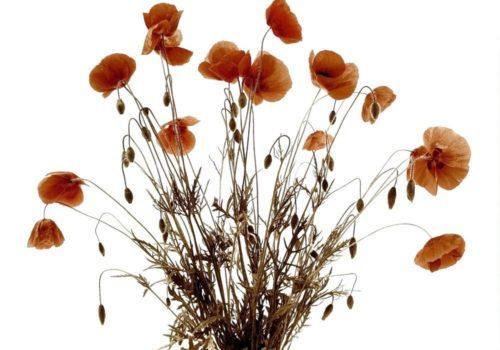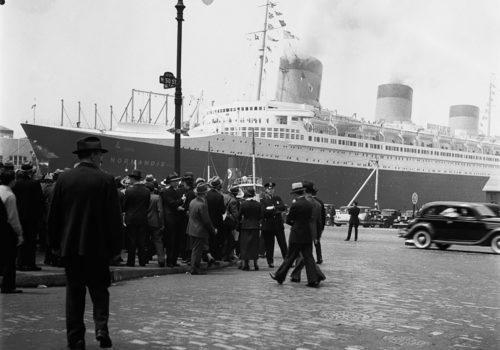At the bend of a narrow street in the Mitte district of Berlin, the Robert Morat gallery welcomes within its walls the Italian photographer Matteo di Giovanni. “True Places Never Are” is a trilogy born of years of rediscovering known places and surveying unknown places.
It is the indefinable aspect of the places we come across that is at the heart of the work of Matteo di Giovanni. The three series presented, each accompanied by their book (and the book object is important) – I wish the world was even (2019), Blue Bar (2020) and I had to shed my skin (2022) – intertwine and together form the logbook of the interior roadtrip traversed by Matteo di Giovanni over the past decade.
“It’s not down on any map, true places never are.”
The name of the exhibition is taken from this quote borrowed from Herman Melville’s Moby Dick, which sounds like a little melody that delicately rocks the small-format images that parade like memory sequences. Matteo di Giovanni, who discovered the novel in 1997 and has not let go of it since, invites us to follow his quest for belonging or perhaps his search for the feeling that is linked to it. Photography then allows him to constitute for himself, if not a just world, a universe which belongs only to him where the landscapes and the subjects are prey to metaphorical readings, like the whale Moby Dick.
I wish the world was even
A round trip of sixty days in 2015, from Milan to the North Pole, cutting Europe vertically. This journey had a particular taste since it started four years after his car accident which plunged him into a four months coma four after which he woke up with one of his leg amputated. . Everything had to be relearned. To walk, to live. And photography, which he had managed to make his profession, too. But nothing will ever be the same and if he did not put words to this impossible return until later, his photographic practice had already been transformed. Documentaries, assignments for the press or NGOs, the photographer now based in Milan had changed his way of approaching the medium alongside his film camera, a faithful ally in his reconstruction. So much so that photography married at the time this insatiable desire to get back in the stirrup by accompanying him during the very first road-trip of the “after”. This series, he says, marked for him the foundation of a new chapter as a photographer and an individual.
We are then taken on this road with him. In these images, no trace of soul but landscapes only as reflections of the soul. A flying Beetle, a morning fog, an enclosed cafe in the middle of nowhere, and still that ambiguous light that makes it hard to tell the time of day. From this trip, we only know the route, impossible to determine geographically where the pictures where taken, even less the time. These photographs are pauses on the road. They force you to stop, to take the time to contemplate the path.
Blue Bar
This series produced between 2016 and 2019 in the Po Delta tells of a certain human condition, that of life near a river. And always almost without a human shadow. Matteo di Giovanni here captures the impalpable space between this place and those who inhabit it. The pictorial motifs – a seagull drawn on a hut on stilts, an IGN map, a forest motif wallpaper – blend into reality, the weather – blue or foggy – dictates the mood of the shots and the lines follow each other from on picture to the next. It is the feeling of getting up in the morning, of walking there, of working there, of going to bed there that are embodied in images.
I had to shed my skin
Last series revealed, these photographs captured between 2012 and 2021 in Pescara, a coastal city on the Adriatic Sea in central Italy, crystallize the act of reappropriation of photography by Matteo di Giovanni together with the reappropriation of his origins. Pescara is where the photographer spent his childhood. If we often talk about the special relationship that we can have with the places that saw us grow up and introduced us to life, Matteo di Giovanni had a rather indifferent relationship. But one day forced to return there for several months of convalescence, is when his gaze was transformed.
And there is something profoundly melancholic about the apparent “banality”. A cactus in a pot made of wood, tomatoes spread out on a checkered tablecloth with holes, a tarpaulined storefront or even a deserted garden terrace. The streets are empty like when you go on an adventure in the off season. We understand that here, it is a question of memories, and above all, of remembering what we are made of.
Noémie de Bellaigue
True Places Never Are by Matteo di Giovanni at Galerie Robert Morat until July 29.
Galerie Robert Morat
Linienstraße 107
10115 Berlin
https://www.robertmorat.de


